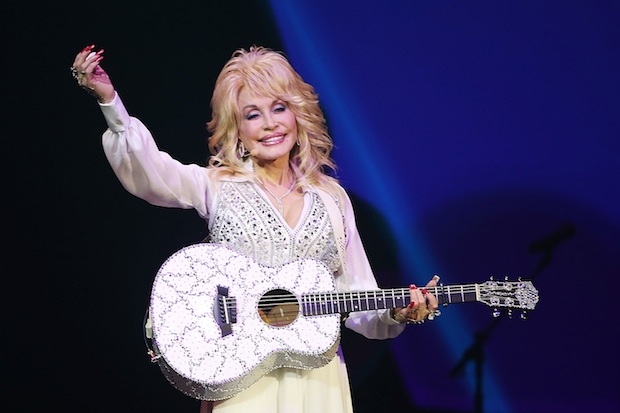It’s a shame Dolly Parton has never gone into politics. She’s someone who’s lived her life very much in the public eye and yet has never lost sight of who she is, of her claim to fame as a country singer. You can tell by the way she sings, even now after more than 50 years in the business, that it’s straight from the heart, nothing synthesised, nothing stage-managed. Her voice just ripples out, tripping lightly through those lyrics of broken hearts, feckless men, without ever sounding bored, trite, as if she didn’t really care. When Paul Sexton went to Nashville to talk to her for Radio 2, she not only gave him a list of her all-time favourite records (Otis Redding’s ‘I’ve been loving you too long’ was at the top of her list, proving her impeccable taste); she also explained how she has survived her decades of celebrity by keeping her sense of self unscathed.
On Dolly’s Jukebox (Easter Monday) she let us into her secret. ‘You’ve got to keep some stuff sacred…the lines I shouldn’t cross.’ Partly, I guess, that’s easier for someone like Dolly who has moulded such an idiosyncratic stage presence — the hair, the make-up, the spangly outfits. We never see Dolly unmasked. But it’s also quite cheering to hear someone of her stature and fame talk with such common sense. ‘It’s OK for people to know a lot [about me],’ she told Sexton, but it’s also important to her that she keeps hold of ‘my God place, my sacred place’. Somehow you believe her.
Dolly could have contributed to Bridget Kendall’s discussion on solitude on this week’s The Forum (World Service, Easter Day). Kendall’s aptly chosen guests were three women writers, a profession that necessitates a high degree of solitude.








Comments
Join the debate for just £1 a month
Be part of the conversation with other Spectator readers by getting your first three months for £3.
UNLOCK ACCESS Just £1 a monthAlready a subscriber? Log in